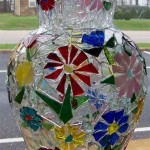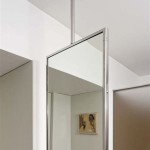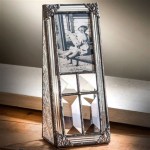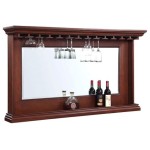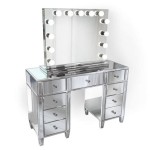How to Dispose of Broken Mirror Glass Safely and Effectively
Broken mirror glass can be a hazardous material to dispose of due to its sharp edges and reflective surface. If not handled properly, it can cause injuries or damage to the environment. Here's a comprehensive guide on how to dispose of broken mirror glass safely and effectively:
Safety First
When dealing with broken mirror glass, safety should be your top priority. Here are some essential safety measures to follow:
- Wear protective gear: Put on thick gloves, safety glasses, and sturdy clothing to protect yourself from cuts and shards.
- Clear the area: Remove any loose glass fragments or shards from the surrounding area to prevent accidents.
- Handle with care: Use tongs or a broom and dustpan to pick up broken glass pieces. Avoid touching them with your bare hands.
Proper Disposal Methods
Once you have taken the necessary safety precautions, you can dispose of broken mirror glass through various methods:
- Wrap and seal: Carefully wrap the broken glass in multiple layers of newspaper or cardboard. Seal the package securely with duct tape or packing tape.
- Place in a sturdy container: Place the wrapped glass pieces in a cardboard box or plastic container with a lid. Ensure the container is sturdy enough to prevent breakage.
- Label clearly: Write "Broken Glass" prominently on the container to alert waste handlers of its contents.
- Contact local waste management: Check with your local waste management authority for specific disposal guidelines in your area. They may provide designated collection points or offer special pickup services.
Recycling vs. Landfilling
Depending on your location and the condition of the broken glass, you may have the option to recycle it. Contact your local recycling center to inquire about their glass recycling program. If recycling is not feasible, broken mirror glass should be disposed of in a designated landfill.
Environmental Considerations
Improper disposal of broken mirror glass can pose risks to the environment. Reflective fragments can attract birds, increasing the risk of collision and injury. Additionally, glass fragments can leach into the soil, potentially contaminating groundwater and harming wildlife.
Additional Tips
Here are some additional tips for safe and effective broken mirror glass disposal:
- Avoid using a vacuum cleaner: Glass shards can damage the vacuum cleaner and pose a safety hazard.
- Keep out of reach of children and pets: Store broken glass in a secure location to prevent potential accidents.
- Dispose of large pieces promptly: If the broken mirror is too large to fit in a container, seek professional help for proper disposal.
Conclusion
Disposing of broken mirror glass safely requires proper handling and disposal practices. By following the guidelines outlined above, you can minimize risks to yourself, others, and the environment. Remember to prioritize safety, choose appropriate disposal methods, and consider recycling options where feasible.

3 Simple Ways To Dispose Of Mirrors Wikihow

How To Recycle Glass Mirrors And Windows 1 800 Got Junk

How To Dispose Of Broken Mirror Glass Learn Blowing

3 Simple Ways To Dispose Of Mirrors Wikihow

3 Simple Ways To Dispose Of Mirrors Wikihow

3 Simple Ways To Dispose Of Mirrors Wikihow

A Foolproof Guide On How To Dispose Of Mirror Ez Cleanup

3 Simple Ways To Dispose Of Mirrors Wikihow

3 Simple Ways To Dispose Of Mirrors Wikihow

How To Recycle A Broken Mirror Diy Geode

